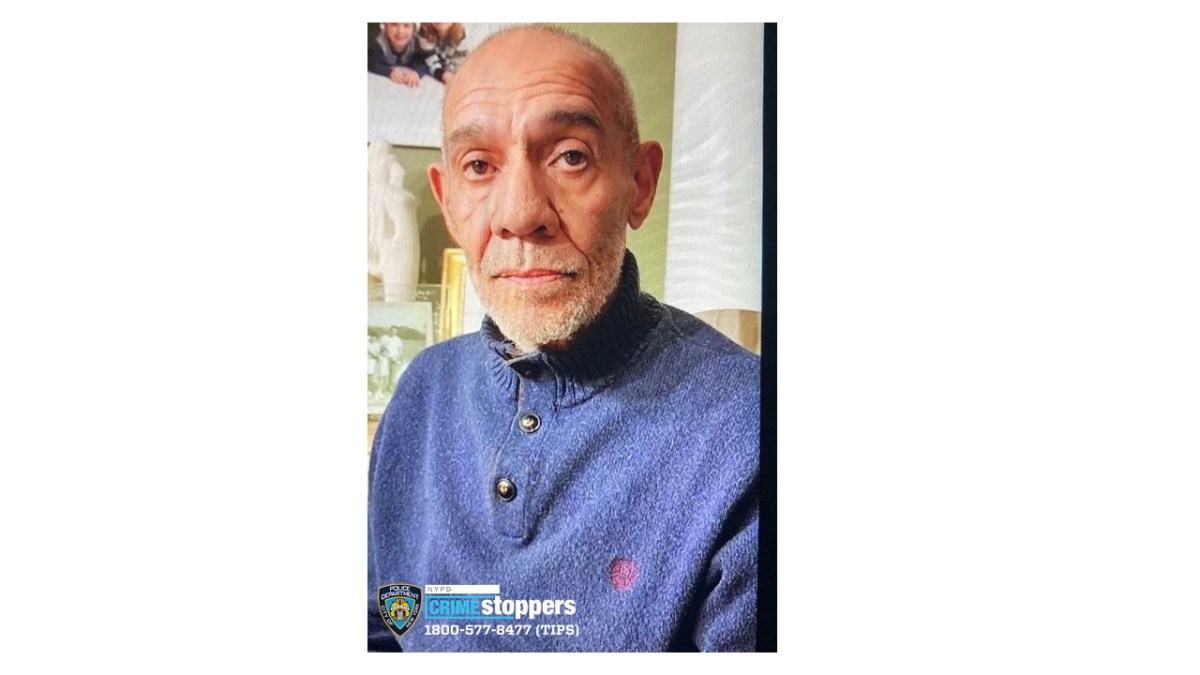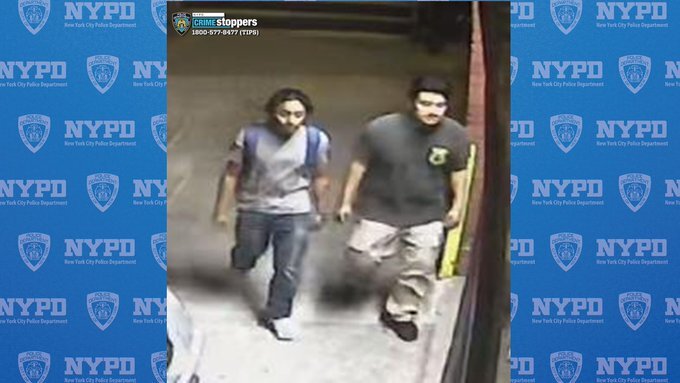The NYPD canceled a “silver alert” Thursday evening after an elderly Richmond Hill man with Alzheimer’s disease was found in Ridgewood following a multi-agency search.
Police from the 104th Precinct in Ridgewood spotted 72-year-old Miguel Angel Rivera as he was wandering in front of Werbco Realty on Onderdonk Avenue near 170th Avenue on Dec. 22, four miles away from his home on 110th Street just south of Forest Park, according to his daughter Vanessa Rivera. He was checked out by EMS at the scene and returned home much to the relief of a grateful family.
“He’s doing much better today,” she told QNS Friday morning. “He was pretty disoriented when they found him yesterday but after we got some food into him he was feeling much better and he got some rest he woke up this morning feeling much better.”
Rivera said the family was greatly relieved after their anxiety grew over the winter storm warnings while her father was missing.
“We were extremely desperate with the scary weather reports,” Rivera said. “The rain was bad enough but the warning about their extreme cold really made us nervous. So, yes. We are very grateful he was found before the weather grew worse.”
Some members of the family believed their father may have been trying to walk to Madison Square Garden where he worked as a security guard for nearly 30 years before retiring in 2012.
“We thought maybe he was heading in that direction,” Rivera said. “He talks about his time working at Madison Square Garden quite often so we felt he might have been trying to get there. The 104th Precinct found him in front of Webco Realty on Onderdonk Avenue and which takes like 20 minutes to drive so for him to be walking that far from home was pretty scary. We are very grateful he was found and that he’s home safe and doing well.”
The Alzheimer’s Foundation of America offered tips to other families of Alzheimer’s patients to prevent wandering.
Wandering is a common behavior that accompanies Alzheimer’s disease. It often stems from a purpose or an unmet need, and can even be a form of communication. For example, some individuals may leave their homes because they believe they need to go to work or to go home.
AFA offers the following tips to help mitigate the risk of wandering:
- Do not leave a person with dementia at home alone.
- Monitor and record the individual’s wandering patterns—frequency, duration, time of day, etc. For example, if wandering occurs first thing in the morning, the person might be hungry; in the late afternoon or early evening, they might be experiencing “sundowning,” if, at night, the person may need to use the toilet.
- Consult with a physician to see if medications can help. Individuals who wander as a result of delusions or hallucinations may require psychotropic medications.
- Join the person to encourage independence and mobility while keeping him safe and supervised.
- Provide recreational activities, such as music, exercise, or crafts to help reduce boredom and keep the individual engaged and active.
- Install electronic chimes or doorbells on doors so someone is alerted if the individual tries to exit.
- Post a large sign that says “stop” on doors leading outside.
- Utilize medical identification bracelets, necklaces, and tracking devices for monitoring
- Alert neighbors and other immediate community members, including local police, of your concerns, so they can be aware.
- Ensure current photographs of your loved one and medical information are available if needed.
- Look for changes in patterns. For example, people who begin to wander after a prolonged period in a facility may suffer from a new medical, psychiatric or cognitive complication. For instance, delirium may produce the abrupt onset of wandering.
- If the individual resides in an assisted living or long-term care setting, provide familiar objects, such as family photographs, slippers, and a quilt, to the individual living to make it feel like home.
- Put away essential items, such as the person’s coat, shoes, pocketbook, or glasses, since some individuals will not go out without certain articles. Check out in advance if your state has a missing person alert system, most commonly known as a Silver Alert.

































